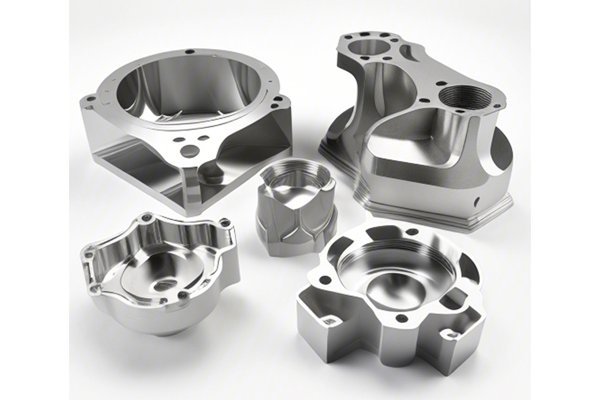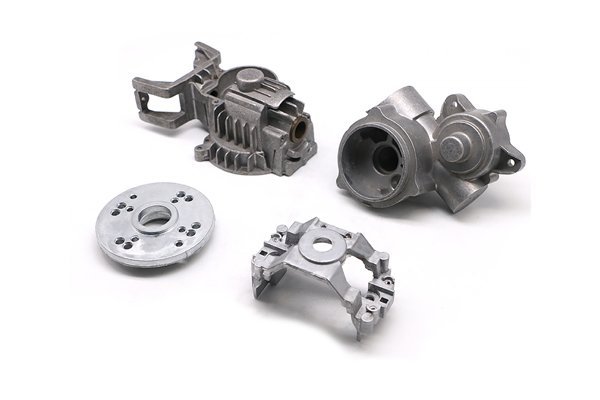Did you know that the global aluminum market is projected to reach a staggering 187 million metric tons by 2026? This increase is largely due to the material’s favorable attributes, making it a crucial player in industries ranging from automotive to aerospace. Yet, to meet specific needs for precision and quality, manufacturers are turning to advanced techniques like CNC (Computer Numerical Control) machining. But what exactly can CNC machining offer when it comes to custom aluminum parts? Let’s delve deeper into this transformative technology and its myriad advantages in manufacturing.
What is CNC Machining?
CNC machining is a subtractive manufacturing process where pre-programmed computer software controls the movement of factory tools and machinery. It enables the automated production of intricate and complex parts with high precision. Unlike traditional machining methods, CNC machining allows manufacturers to produce components with remarkable accuracy, speed, and repeatability.
The Process of CNC Machining
The process begins with the design phase. Engineers use CAD (Computer-Aided Design) software to create a detailed 3D model of the part. The software generates specifications such as dimensions, tolerances, and materials.
After the design is complete, CNC programmers convert the CAD drawing into a CNC program, which tells the machine exactly how to move and operate. This step is crucial for ensuring that the resulting product matches the designed specifications.
The CNC machine then executes the programmed instructions. It uses various tools to cut, drill, deburr, or shape the aluminum material until the final product is achieved.
After machining, the components go through rigorous quality inspections to ensure they meet the required standards. This often involves checking dimensions, tolerances, and surface finishes.
Advantages of CNC Machining for Custom Aluminum Parts
CNC machining is known for its high degree of accuracy. The advanced technology eliminates human error and allows for the consistent production of parts that meet precise specifications. This level of precision is particularly critical in industries like aerospace and automotive, where even the slightest variance can result in failure or inefficiency.
One of the standout features of CNC machining is its ability to replicate parts consistently. Once a program is created, it can be duplicated indefinitely without any loss of quality. This characteristic is essential for high-volume manufacturing where thousands of identical parts are required.
CNC machining can create exceptionally complex designs that would be challenging or impossible to achieve with traditional manufacturing methods. Engineers can design intricate features such as undercuts, contours, and fine details, making it ideal for custom aluminum parts that often require unique geometries.
CNC machining is much faster than manual machining. The automated processes significantly reduce production time, allowing companies to respond quickly to market demands. Fast turnaround times are especially important in industries that operate under tight deadlines.
CNC machining entails a subtractive process, meaning that material is carved away to create the final part. However, due to the precision of CNC machining, there is minimal excess waste. Manufacturers can maximize the usage of aluminum sheets, leading to cost savings and a lower environmental impact.
Another major advantage is the versatility CNC machining offers. CNC machines can work with various materials, including different grades of aluminum. This adaptability allows manufacturers to use CNC machining for a broad spectrum of projects across different sectors.
The automation inherent in CNC machining not only improves efficiency but also reduces labor costs. With fewer operators needed to oversee the machinery, companies can redirect human resources to other crucial aspects of production or R&D.
CNC machining facilitates customization like no other process. Whether it’s a unique design or specific specifications, CNC machining can deliver custom parts that meet unique customer demands. This service is increasingly important in a market that values tailored solutions.
CNC machining can produce superior surface finishes compared to conventional manufacturing methods. The precise control over machining parameters allows manufacturers to achieve excellent surface qualities, which not only improves aesthetics but also influences functional performance.
With CNC machining, most operations are automated and monitored through software, which elevates safety standards. Operators spend less time interacting directly with the machines, thereby reducing the chances of accidents associated with conventional machining practices.
Industries Benefiting from CNC Machining of Custom Aluminum Parts
Aerospace

The aerospace industry relies heavily on precision. CNC machining allows the production of lightweight yet strong components essential for aircraft. Parts such as brackets, fittings, and structural components can be manufactured with stringent tolerances.
Automotive
In automotive manufacturing, custom aluminum components produced through CNC machining enhance fuel efficiency while maintaining strength. Applications include engine parts, transmission housings, and chassis components.
Medical
Medical devices often require precise components tailored to specific applications. CNC machining is utilized to manufacture surgical instruments, implants, and other critical devices where precision is non-negotiable.
Electronics
The electronics sector benefits from CNC machining in creating parts like heat sinks, enclosures, and connectors. The ability to produce complex geometries allows for better thermal management and device functionality.
Consumer Products
From custom bike frames to specialized kitchen appliances, consumers demand tailored products. CNC machining meets this need through custom parts designed to specific requirements, enhancing performance and user experience.
Challenges and Solutions in CNC Machining for Custom Aluminum Parts
Challenge 1: Design Complexity
As designs evolve, complexity can present challenges. Complex geometries may require specialized tools or setups.
Solution: Investing in advanced software for design simulation can provide clear insights into potential challenges. CNC operators can then optimize the machining approach to accommodate complexity.
Challenge 2: High Setup Costs
The initial costs of CNC machining can be high, particularly for small batches.
Solution: Companies can utilize CNC machining services that offer flexible batches or work with providers that specialize in rapid prototyping to reduce upfront expenses.
Challenge 3: Material Selection
Aluminum comes in various grades, affecting machinability and part performance.
Solution: Conducting thorough material tests and collaborating with material specialists can help in selecting the optimal aluminum grade for the specific application.
Challenge 4: Skilled Labor Shortage
There may be a shortage of skilled CNC machinists.
Solution: Investing in training programs and partnerships with educational institutions can create a skilled workforce capable of driving CNC machining programs.
Future Trends in CNC Machining for Custom Aluminum Parts
The future of CNC machining is set to be revolutionized by artificial intelligence and machine learning. These technologies will enable real-time monitoring and predictive maintenance, enhancing efficiency and reducing downtime.
Hybrid manufacturing, which combines additive and subtractive processes, is gaining momentum. This approach can streamline the fabricating of complex parts while leveraging the strengths of both technologies.
IoT is poised to create a smart manufacturing environment. CNC machines connected to the internet can share data for improved workflow management, diagnostics, and inventory monitoring.
As industries become more environmentally conscious, sustainable practices in CNC machining will lead to the use of eco-friendly materials and waste reduction techniques, promoting a greener manufacturing landscape.
In summary, CNC machining offers a wealth of advantages for the manufacturing of custom aluminum parts, including precision, efficiency, and versatility. This advanced technology aligns perfectly with the needs of diverse industries, from aerospace to consumer products, providing tailored solutions that drive innovation and competitiveness.
As we look to the future, embracing trends such as automation, IoT, and sustainability will be essential for companies seeking to maximize the benefits of CNC machining. By continually adapting to these advancements, manufacturers can maintain their edge in an ever-evolving marketplace.
In a world where precision and quality are paramount, understanding the capabilities and benefits of CNC machining for custom aluminum parts is more important than ever. By leveraging this technology, businesses can not only satisfy their current demands but also prepare for the challenges and opportunities that lie ahead. If you are contemplating the manufacturing of custom aluminum parts, it is worth investing the time to explore how CNC machining can meet and exceed your expectations.






